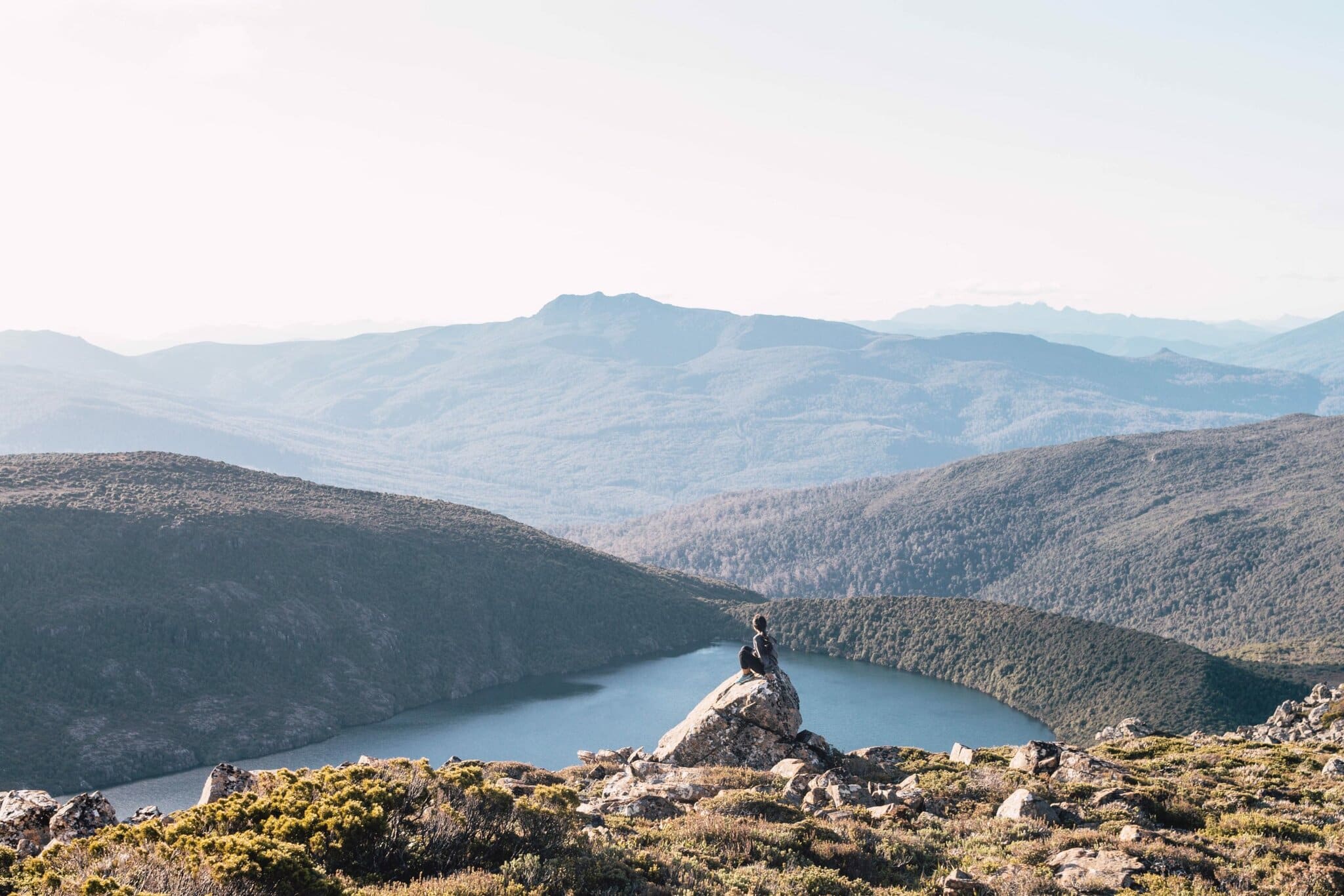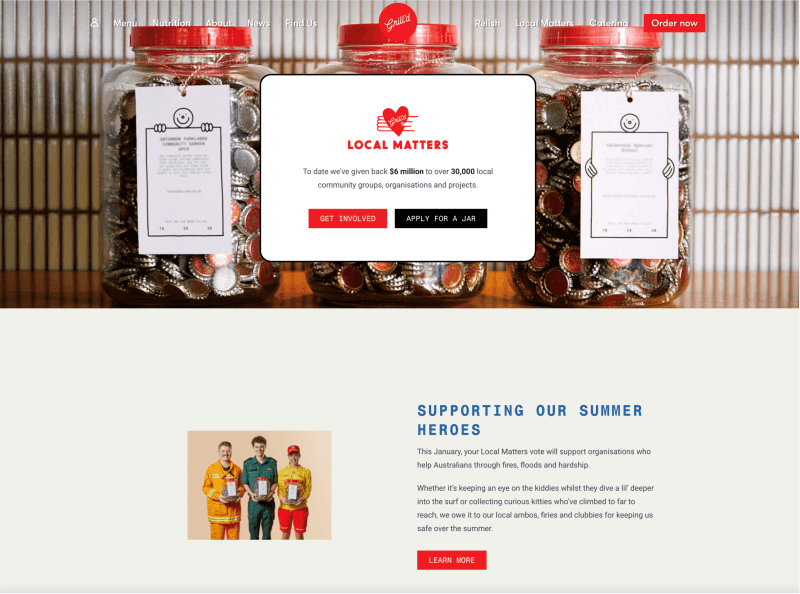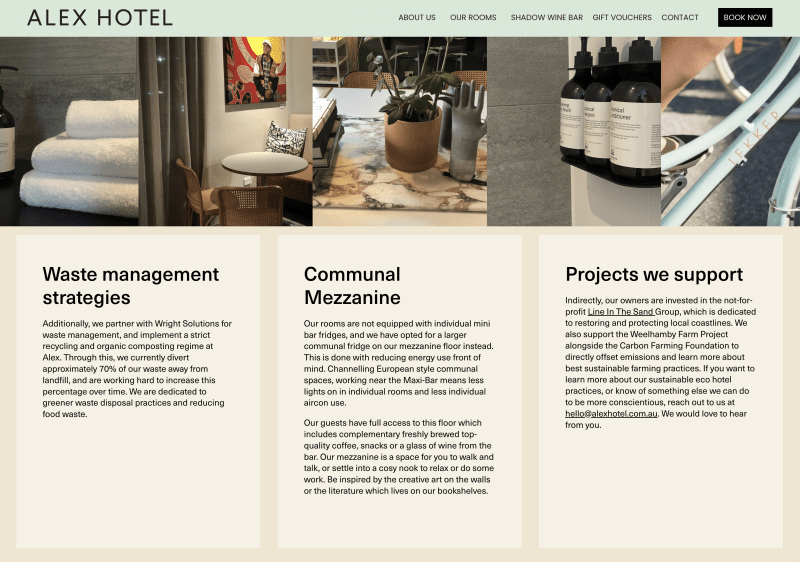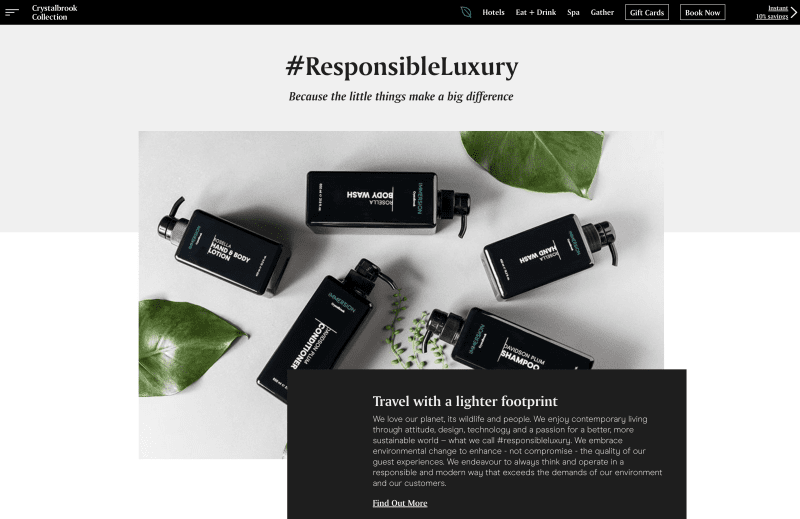10 Budget Friendly Eco Practices for Tourism Businesses
Published on February 8, 2023

Many businesses have the perception that you can have profits or sustainability, but not both. Or that being a sustainable business costs more.
For small tourism businesses, the pressure of budget and resources to infuse sustainability across your business can be seen as a barrier.
AccorHotels has saved millions of euros by encouraging guests to reuse towels and conserve water and a portion of that money has gone into conservation projects.
Although it may take an initial investment, ‘greening’ your business will save money over time.
But there are ways for tourism businesses to implement sustainable practices that are budget friendly, saves costs and improves product offering and customer service.
1. Seek out grants to help implement eco practices
There may be grants available to help pay for sustainable initiatives and infrastructure.
The Australian government has introduced several measures to promote environmentally friendly initiatives. Assistance programs are available in the form of grants, incentives, awards and subsidies to businesses.
Your business may well be eligible for grants to help you install solar panels, composting facilities, reduce waste, and other initiatives for your business.
In addition to environmental grants, you might find business development grants are available for your business which you may qualify for with eco practices you are thinking about implementing.
Research to see what grants are available to you from your shire/council, state, federal or through other sustainability organisations.
There are online resources to search for environmental grants including:
2. Change to ethical utility providers
Many of the main banks in Australia help fund the fossil fuel industry meaning choosing who your business banks with can make a difference.
The Australian Conservation Foundation bank rank describes how ‘The big 4 banks have publicly committed to stop financing coal by 2030 or 2035….But all 4 still invest billions each in another ageing fossil fuel that harms our climate – gas! And they have no plans to stop.’
It doesn't cost anything to seek out banks that are not investing in the fossil fuel industry, so that your business isn’t indirectly contributing to these.
Likewise, you can use fantastic resources such as The Green Electricity Guide by Greenpeace to find the most ethical energy providers for your business to use. The guide ranks the top 10 providers and shows which are investing in renewables energy and generating renewable electricity.
There are also more ethical providers than others for your telco, internet provider, and insurances.
A great way to find these sorts of providers is by utilising the B-Corp directory, as you may know all B-Corp Certified businesses have met the highest standards of social and environmental performance, transparency and accountability. For example, you know that a B-Corp bank will not be investing in the fossil fuel industry.
It is strongly recommended to review your providers on an annual basis to ensure they continue to be aligned with what you are looking for. Your provider may be the most ethical choice today but that can quickly change.
Powershop are a carbon neutral energy provider who were recently acquired by Shell who are a major global climate polluter and fossil fuel miner.
3. Customer funded donations
Support your community by helping your customers support community causes, projects and initiatives which are socially and environmentally beneficial to your local area.
A fantastic way to raise funds for local environmental and social projects you are passionate about, is to give your customers the option to donate.
This could be a physical donation box at your venue, or an online optional donation box at check out when a customer is booking your product. Grill'd is a local business who is activating a similar initiative at their shops.

Travellers want to give back especially if they see or learn about why the local project is so important. Provide information on what you are supporting and why, set targets of funds to raise and encourage your customers to get involved.
4. Seek local to fit your budget
When it comes to sourcing products materials and service providers for your business, avoid Googling the cheapest option online regardless of where that product comes from.
Instead, see what options there are from small local conscious businesses and reach out to them.
Not only do your customers love using local products as part of the experience, but local businesses love you displaying it to your customers and may be able to help you work within your budget by providing you wholesale pricing, or surplus/old stock at a lesser rate.
You can even look to set up a discount code on the product, so your customers end up purchasing more directly from the small local business after trying the product with you!
5. Calculate the long-term savings
Installing solar panels and composting facilities can become a no brainer when you calculate how much it will save your business costs in the long term.
There are grants currently available for installing solar panels, which can not only help you fund your business being powered by renewable energy, but also reduces your carbon footprint, and saves your business money in the long run.
Likewise, installing home composting can mean you save food waste going to landfill by composting your food scraps whilst generating compost to fertilise your plants/garden.
6. Educate your customers with a cost saving initiative
You may be able to find cost-saving initiatives which also enhance your customer experience/service.
Tap water in parts of Australia is some of the highest quality in the world such as in Melbourne and is often better for you than bottled water.
Your customers might not be aware of this, but a simple bit of information displayed on the benefits, together with providing reusable water bottles means you are saving costs on bottled water, plastic waste, and your customers are happier after learning they are drinking water that is better for them and doesn’t have a negative impact!
The Alex Hotel in Perth does this by labelling reusable bottles filled with their tap water in each room.

7. Reuse items as part of your service to save costs
Another eco initiative which can provide your customers a great service, whilst saving you money is finding items in your business which you can reuse.
This may be by providing reusable coffee cups or bottles which your customers hand back to you or an (eco-friendly) towel service.
Sustainable Luxury hotel chain, Crystalbrook Hotels and The Port Lincoln Hotel incentivise guests to have a footprint free stay by rewarding them for opting out of having their rooms serviced by providing them vouchers to use at the hotel restaurant/bar. This leads to less waste and water being used to clean the room, and replace linen/towels etc whilst also encouraging more spend in the on-site restaurant/bar.

8. Support Local projects on your path to net-zero
If you are looking at calculating and offsetting the emissions of your business, it might be tempting to look for the cheapest offshore offset option. Many offsetting schemes can be controversial and not what they seem.
Look local and speak to a tree planting project close to where you operate. You could look to offset your emissions by volunteering your time to plant trees as well as donating to plant more.
Always aim to decarbonise your business rather than just offsetting so as much of the energy your business comes from renewable sources.
9. Manage your waste
Give your customers the most opportunities to dispose of waste responsibly.
If you have a venue, have multiple bins available to separate out recycling, composting bins your guests can access.
If you are a tour, consider carrying portable bins to not only take any waste your customers cause with you, but also to collect any you see in the places you visit.
A beach clean-up can be a fantastic give-back activity which is free for your customers to do, supports the environment and community and means you are operating more responsibly.
You may also consider upcycling waste into a product and selling this to generate revenue or funds to donate.
Wild Adventures Melbourne transforms plastic waste into drinks coasters and sells these to fund further ocean clean-ups and conservation projects.
10. Sign up to free declarations to pledge your commitment
There are many eco accreditations and certifications which involve a cost. There are also free options where you can pledge your commitment to the environment.
Consider signing up to the Tourism Declares A Climate Emergency or align your business with the UN Sustainable Development Goals (SDG’s) and display these on your channels.
We'd love to hear from you!
We're on the hunt for small and medium size tourism businesses who are implementing some creative budget-friendly eco practices, so please let me know on email if you've got some strategies to share!
